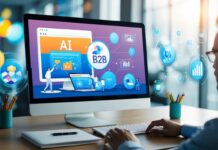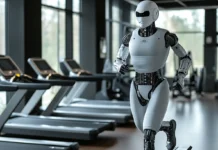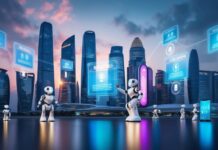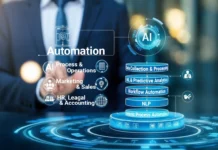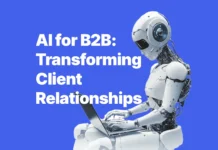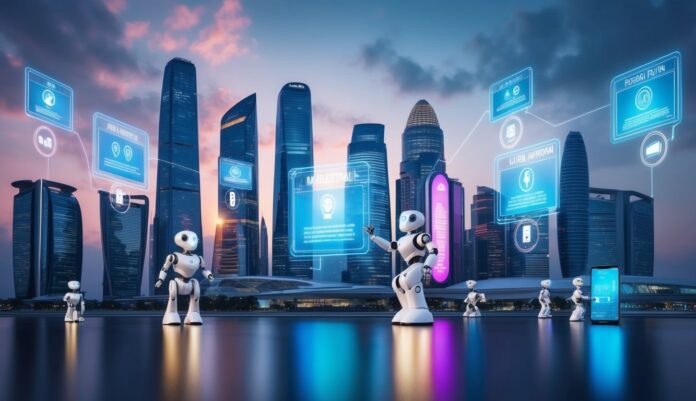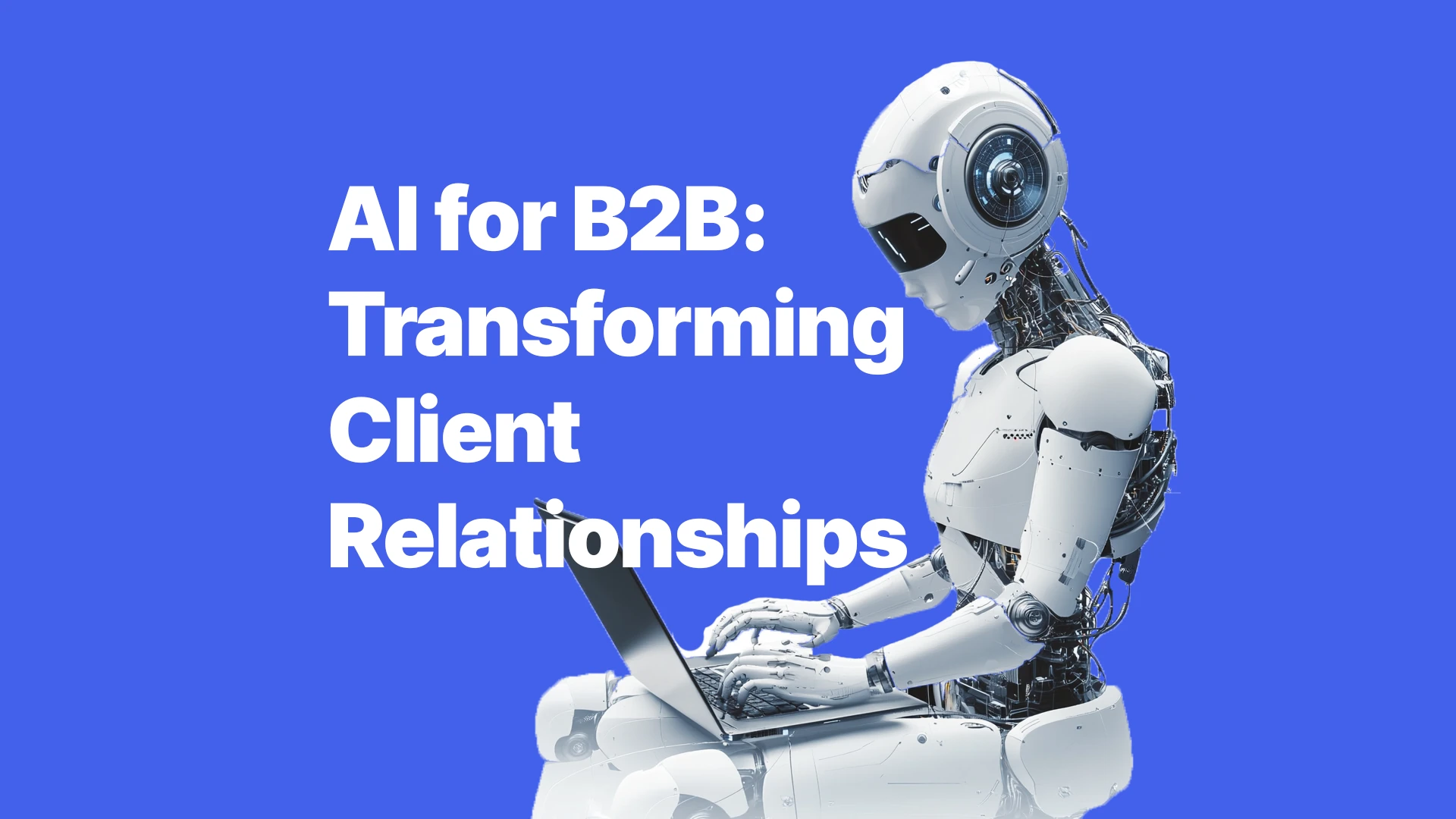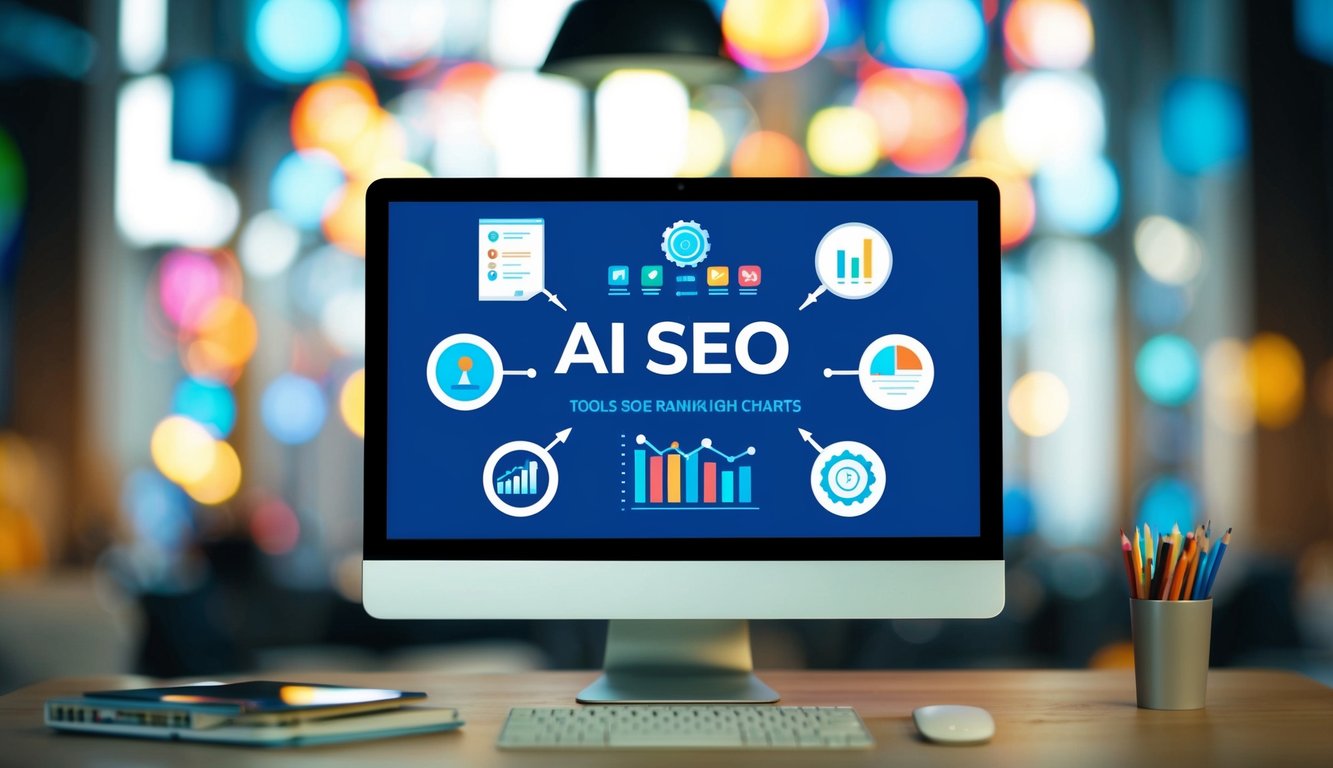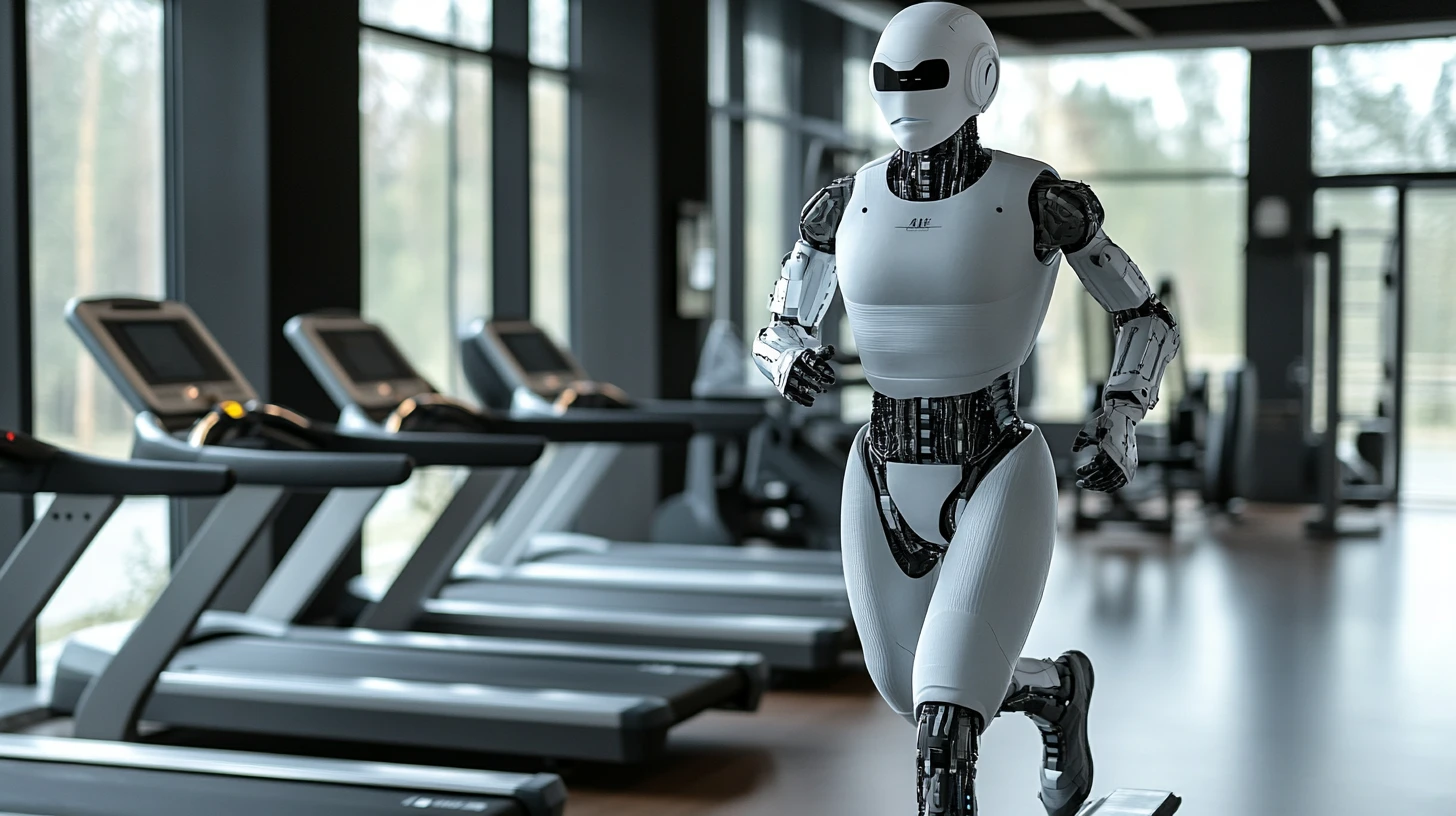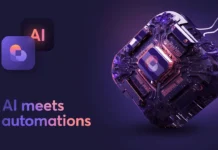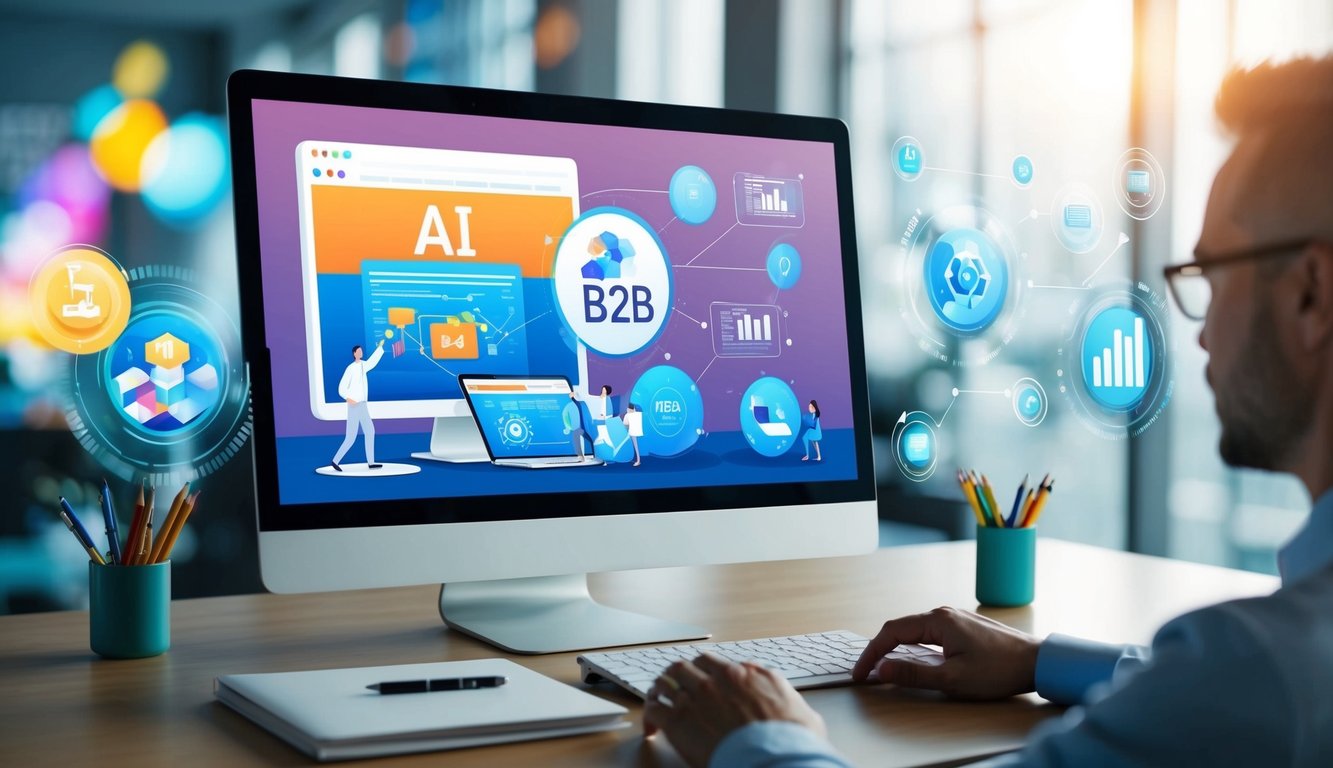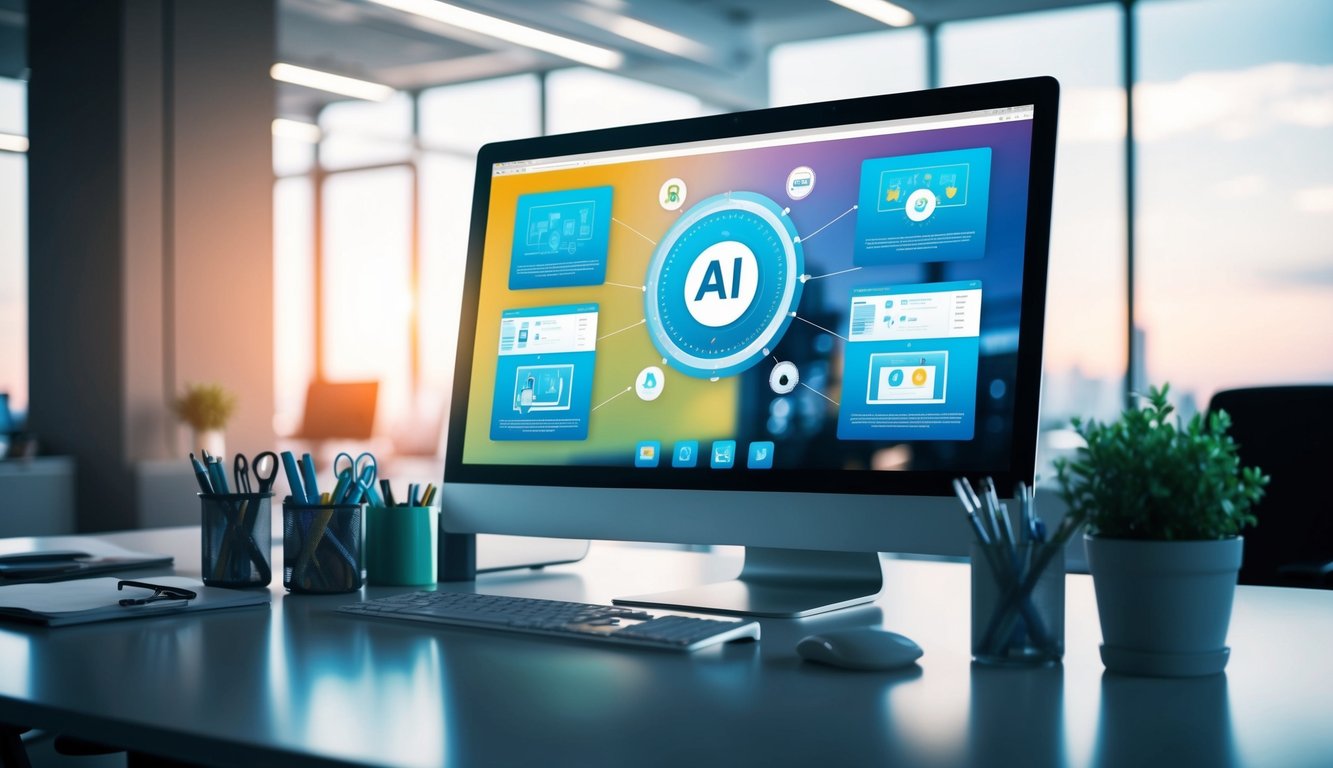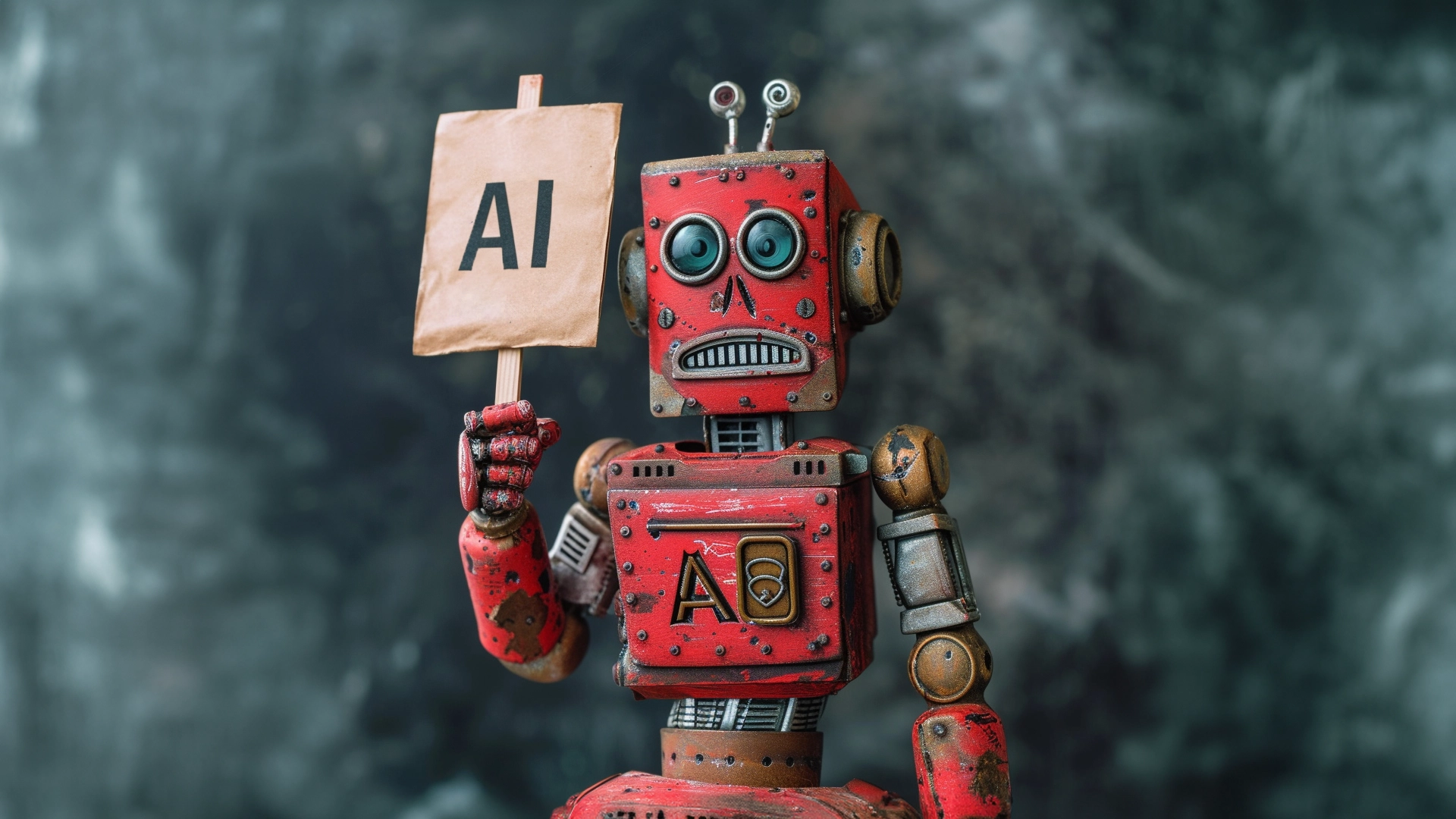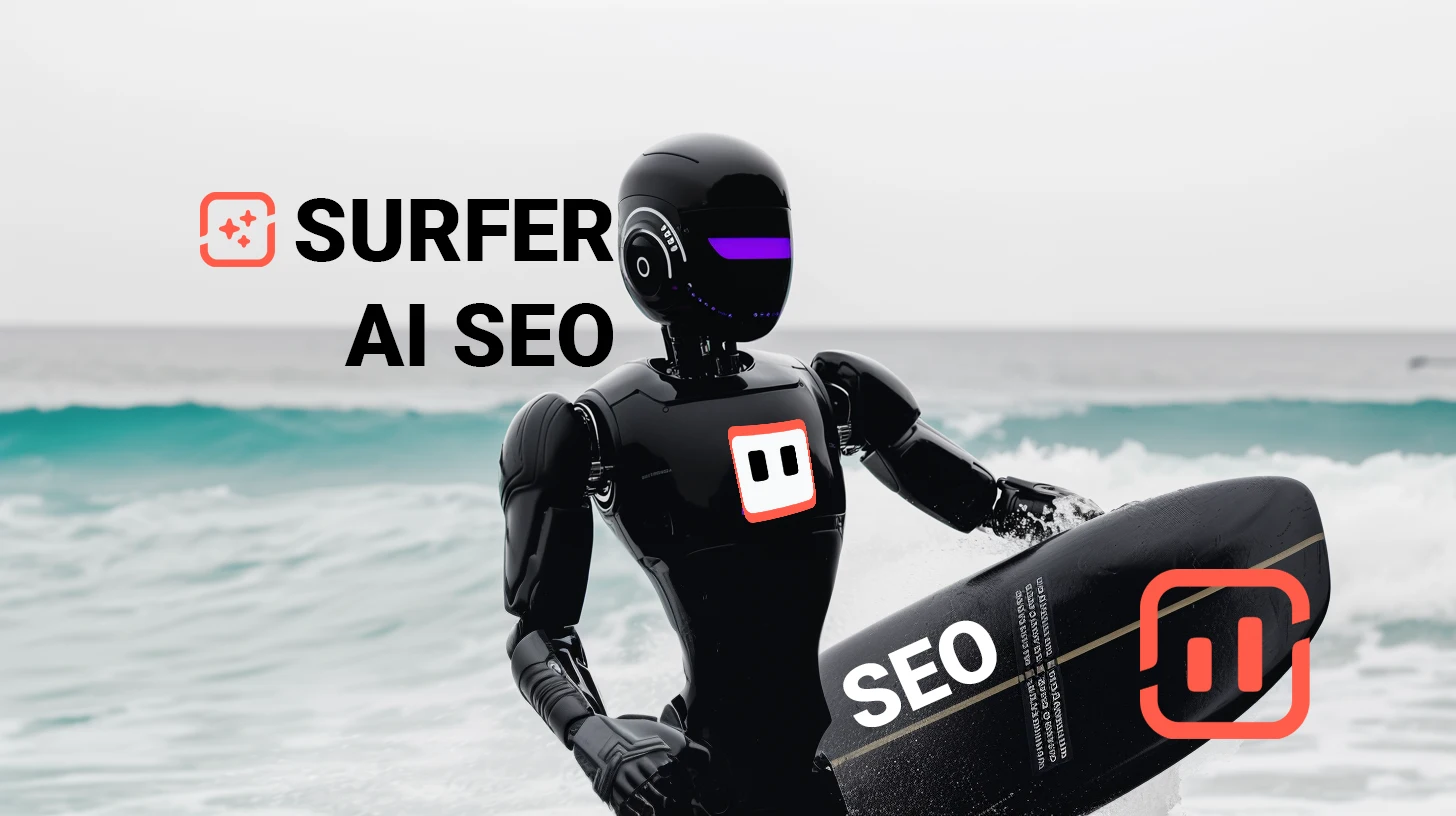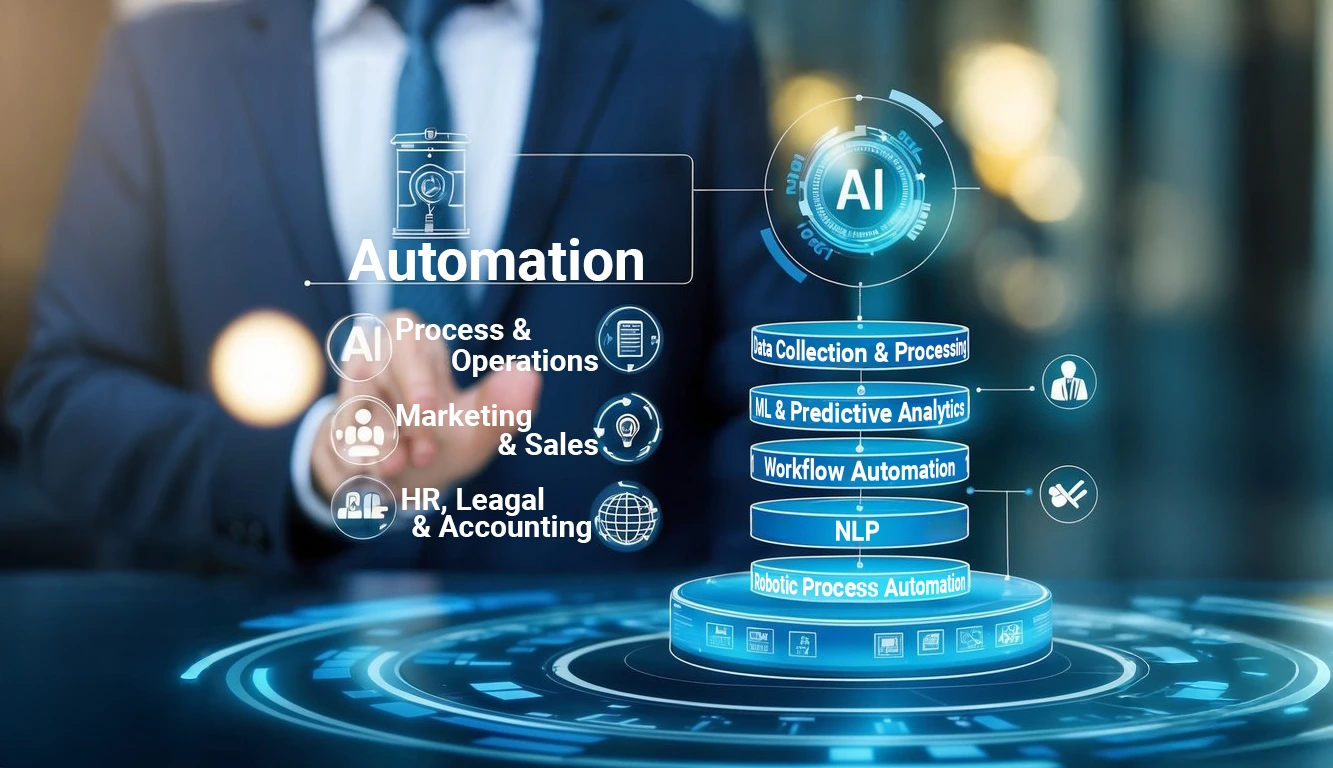As we approach 2025, AI tools are changing the way we work and live. I’ve been amazed at how quickly these technologies have evolved. From chatbots that sound just like humans to AI that can write code, the possibilities seem endless. By 2025, AI tools will be integrated into nearly every aspect of our daily lives, making tasks easier and boosting productivity across industries.
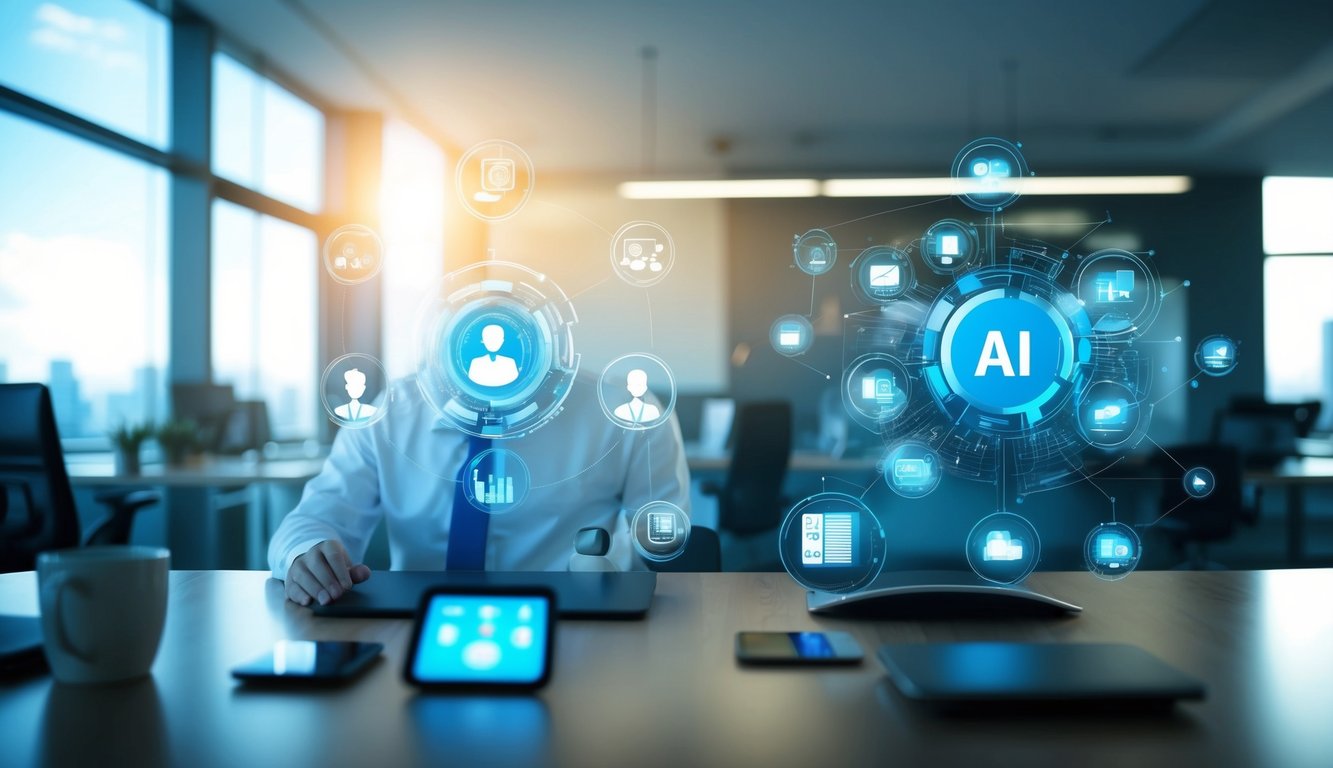
I’ve seen firsthand how AI is transforming businesses. Just last week, I used an AI writing assistant to draft a report in half the time it usually takes me. And I’m not alone – companies are increasingly using AI agents to automate tasks and make real-time decisions. It’s like having a super-smart assistant that never sleeps!
But it’s not all smooth sailing. As AI becomes more powerful, we need to think about the ethical implications. I worry sometimes about privacy and job displacement. Still, I’m optimistic that with the right guidelines and legislation, we can harness AI’s potential while protecting human interests.
Key Takeaways
- AI tools in 2025 will be seamlessly integrated into our daily lives and work routines.
- Ethical considerations and legislation will play a crucial role in shaping AI development.
- AI will enhance productivity across industries while also raising important societal questions.
Evolution of AI Tools
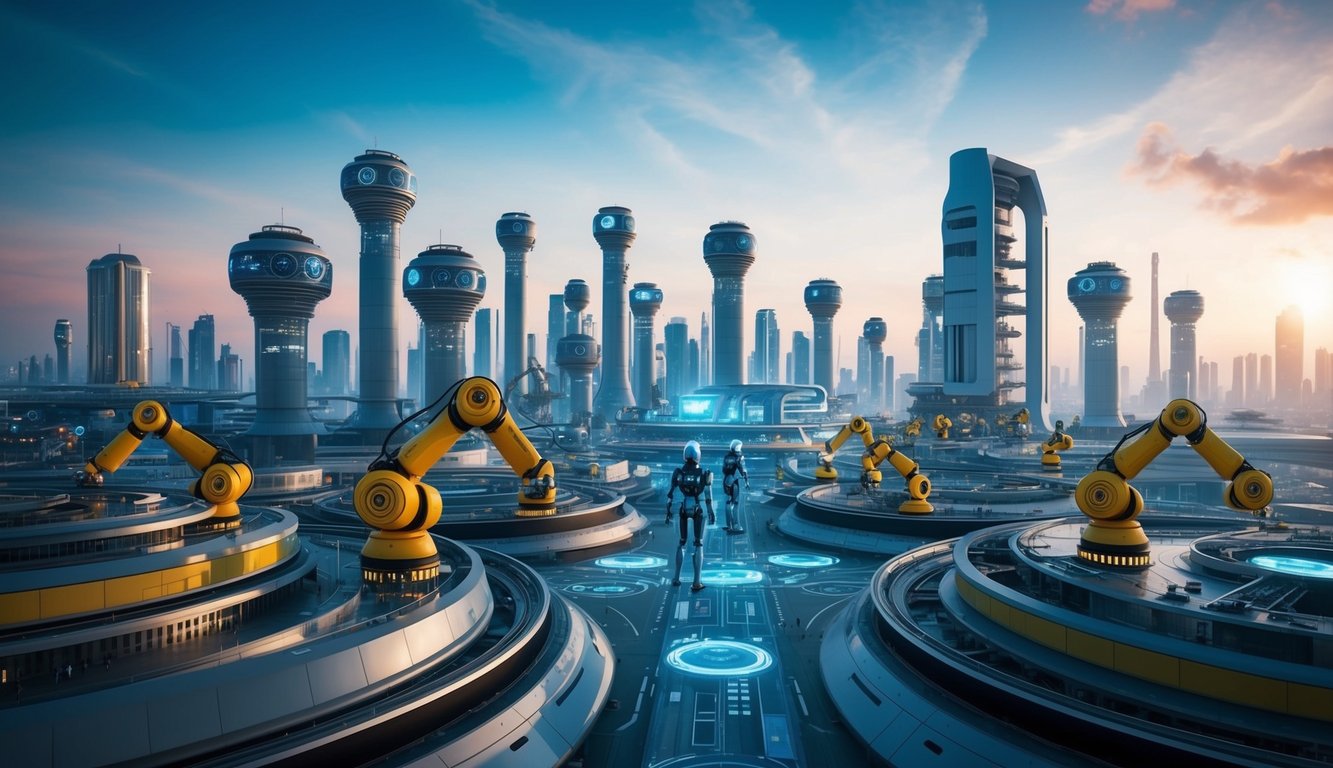
AI tools have come a long way in recent years. Their capabilities have expanded rapidly, changing how we work and interact with technology. I’ve seen firsthand how these tools have transformed industries and opened up new possibilities.
Generative AI
Generative AI has exploded in popularity. I remember when the first text-to-image tools came out – they were neat but limited. Now, they create stunning, photorealistic images from simple text prompts. It’s like magic!
Text generation has improved too. ChatGPT and similar AI models can engage in human-like conversations across a wide range of topics. As a writer, I find them incredibly useful for brainstorming and editing.
Voice assistants have become much smarter. My digital assistant now understands context and can handle complex, multi-step tasks. It’s like having a personal secretary!
AI in 2025
By 2025, I expect AI to be even more integrated into our daily lives. AI agents will likely have more autonomy, simplifying tasks at home and work. Imagine an AI that can schedule your appointments, order groceries, and even negotiate your bills!
Quantum AI is an exciting frontier. While still emerging, it promises to solve complex problems much faster than classical computing. I can’t wait to see its real-world applications.
AI ethics and governance will be crucial. As these tools become more powerful, we’ll need to ensure they’re used responsibly. It’s a challenge, but one I believe we can tackle together.
AI and Software Development
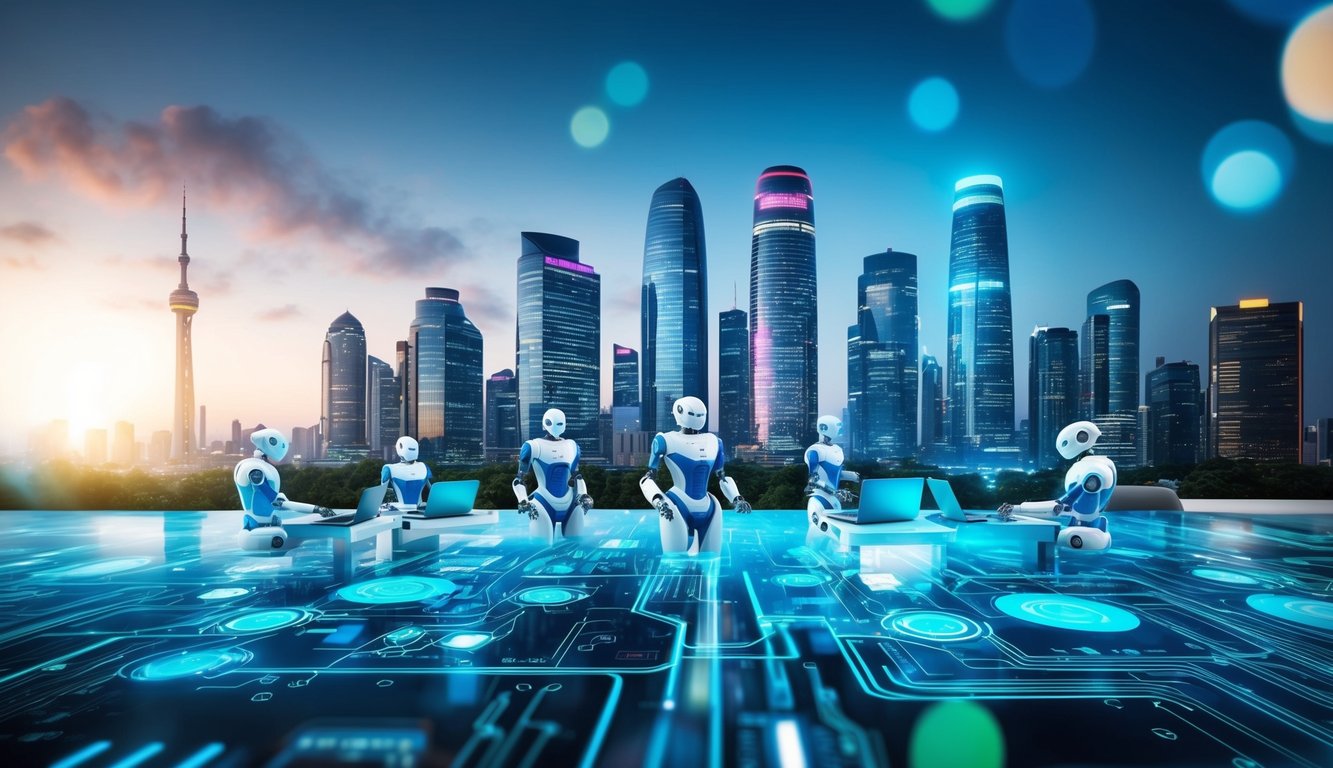
AI is changing how we write code and build software. It’s making developers more productive and helping solve complex problems. Let’s look at some key ways AI is impacting software development.
Coding Assistance
AI coding assistants are making my life as a developer so much easier. They suggest code completions and help me fix errors faster. It’s like having a super smart pair programmer by my side!
These tools use machine learning to understand coding patterns and best practices. They can generate entire functions or suggest optimizations. I’ve found they really speed up my workflow.
One cool example I tried recently was an AI assistant that converted my comments into working code. It wasn’t perfect, but it gave me a great starting point to build on.
GitHub Copilot
GitHub Copilot feels like it can read my mind sometimes. It’s an AI pair programmer that integrates right into my code editor.
As I type, Copilot suggests whole lines or blocks of code. It’s trained on billions of lines of public code, so it often knows exactly what I’m trying to do.
I was skeptical at first, but Copilot has saved me tons of time on repetitive tasks. It’s especially helpful for things like:
- Writing boilerplate code
- Implementing common algorithms
- Suggesting unit tests
Of course, I always review its suggestions carefully. But overall, Copilot has significantly boosted my productivity.
Quantum Computing
Quantum computing is still in its early stages, but it’s starting to impact how we develop software. These powerful machines can solve certain problems much faster than classical computers.
I’m excited about the potential for quantum algorithms to revolutionize fields like:
- Cryptography
- Drug discovery
- Financial modeling
Writing software for quantum computers requires a different mindset. We have to think in terms of qubits and quantum gates instead of traditional logic.
Some companies are already offering cloud-based quantum computing services. This lets developers like me experiment without needing access to expensive hardware.
As quantum hardware improves, I expect we’ll see more practical applications emerge. It’s a fascinating field that’s pushing the boundaries of what’s possible in software development.
AI in Content Creation
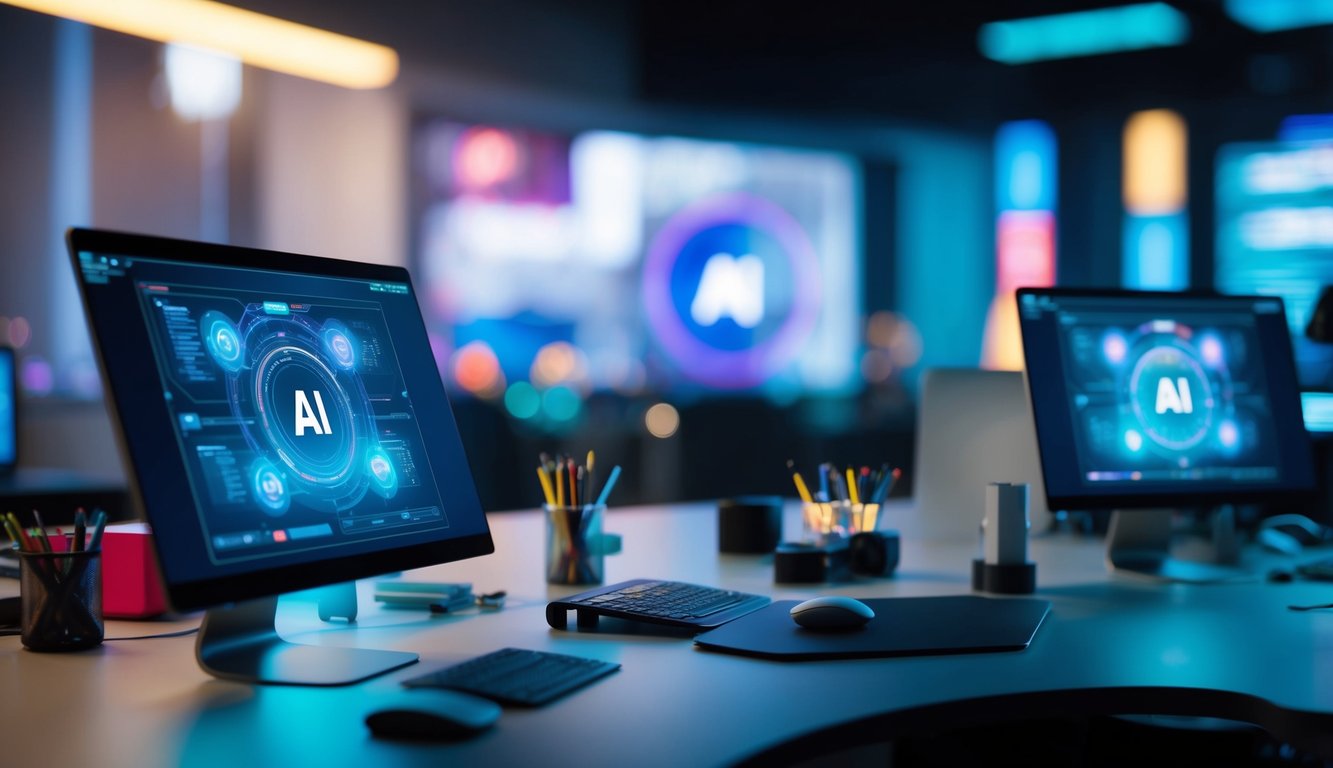
AI tools are changing how we make content in exciting ways. I’ve seen firsthand how they can spark new ideas and speed up tedious tasks. Let’s explore some key areas where AI is making a big impact.
Content Generation
AI writing tools have come a long way. I use them to brainstorm ideas and create first drafts quickly. AIContentfy can generate articles and blog posts tailored to specific needs. It’s like having a writing partner who never gets tired!
These tools use natural language processing to understand context and produce human-like text. I’ve found they’re great for:
• Generating product descriptions • Writing social media posts • Creating email newsletters
But I always make sure to review and edit the AI-generated content. It’s important to add my own voice and check for accuracy.
Video Creation
AI is making video production easier and more accessible. I’ve used tools that can automatically edit footage, add captions, and even create animations.
Kiwi Video is one tool I love. It generates summaries of video content, which helps me:
• Quickly grasp key ideas from long videos • Create short-form content from longer videos • Repurpose video content for different platforms
AI can also suggest music and sound effects that match the mood of your video. It’s like having a whole production team at your fingertips!
AI-Generated Avatars
I’m fascinated by AI-generated avatars. These digital personas can represent brands or individuals in videos and other content.
Some benefits I’ve seen:
• Creating consistent brand representatives • Making personalized video content at scale • Providing a face for narration or presentations
AI avatars can be customized to match different demographics and styles. They’re not perfect yet, but they’re improving rapidly.
Descript
Descript is a game-changer for audio and video editing. I use it to edit podcasts and video scripts as easily as editing a text document.
Key features I love:
• Automatic transcription of audio and video • Text-based editing of audio/video content • Removing filler words with one click
It even has an AI voice cloning feature. I can generate voiceovers in my own voice without having to re-record!
Synthesia
Synthesia is amazing for creating AI-powered videos. I’ve used it to make training videos and product demos without needing a camera or actors.
What I find most useful:
• Creating videos with AI presenters • Translating videos into multiple languages • Customizing videos for different audiences
The AI presenters look and sound surprisingly natural. It’s a powerful tool for creating professional-looking videos quickly and affordably.
Impact on Various Industries
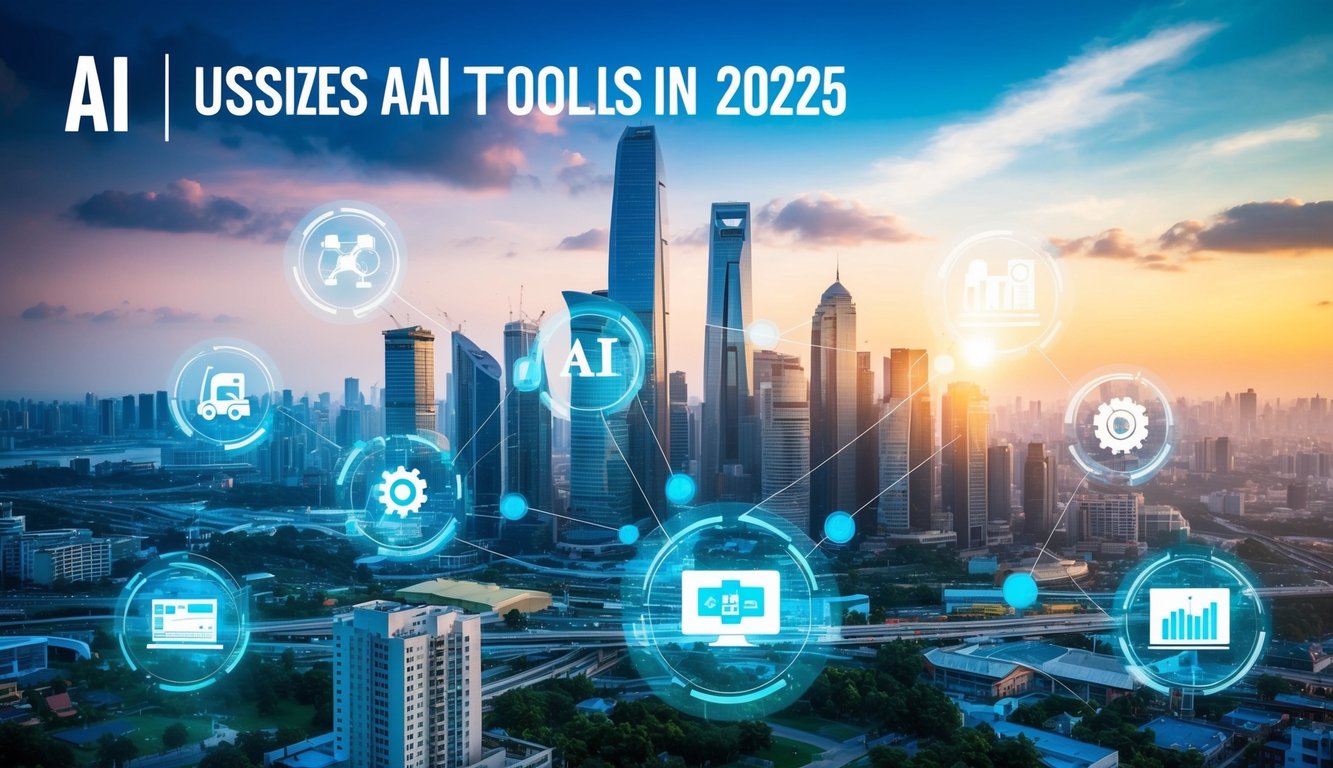
AI tools are transforming key sectors in 2025. They’re changing how we handle healthcare, learn, manage money, and market products. Let me share some exciting developments I’ve seen.
AI in Healthcare
I’ve been amazed by how AI is revolutionizing patient care. AI-powered diagnostic tools now spot diseases faster and more accurately than ever before. This helps doctors create personalized treatment plans.
I recently saw a demo of an AI system that predicts heart attacks days in advance. It’s incredible! These tools analyze vast amounts of patient data in seconds, something that would take humans hours or days.
Robotic surgeries guided by AI are becoming common too. They’re reducing surgical errors and speeding up recovery times. I’m excited about the potential for AI to make healthcare more accessible and affordable for everyone.
AI in Education
Education is another area where I’ve seen AI make big strides. Personalized learning platforms now adapt to each student’s pace and style. It’s like having a tutor for every child!
I tried out a virtual reality language learning app that uses AI. It creates immersive scenarios and corrects pronunciation in real-time. It’s fun and effective – I picked up basic Mandarin in just a few weeks.
AI is also helping teachers. It grades assignments, provides detailed feedback, and even suggests personalized homework. This frees up time for more one-on-one interaction with students.
AI in Finance
In the finance world, AI is making things faster and smarter. I’ve noticed how AI agents are being deployed by many companies to handle complex tasks with minimal human input.
Robo-advisors now manage investment portfolios with impressive results. They analyze market trends and adjust strategies in real-time. It’s like having a team of expert analysts working 24/7!
Fraud detection has improved dramatically too. AI systems spot suspicious transactions instantly, protecting our money better than ever before.
AI in Marketing
Marketing has become super personalized thanks to AI. I’m always surprised by how accurately online ads seem to know what I want!
AI analyzes consumer behavior across multiple platforms. It predicts trends and helps create targeted campaigns. I’ve seen small businesses use these tools to compete with big brands.
Chatbots have come a long way too. They now handle customer queries so naturally, it’s often hard to tell if I’m talking to a human or AI. This improves customer service while saving businesses money.
Enhancing Customer Experience

AI tools are transforming how businesses interact with customers in 2025. They’re making support faster and more personal. Let’s look at two key areas where AI is making a big difference.
Customer Support
AI chatbots have come a long way. They now handle most basic questions without human help. I’ve noticed they’re getting better at understanding context too. For example, if I ask about a product I bought last week, the bot knows my history.
AI-powered tools are working with apps like Salesforce and ServiceNow. This means customer info is always up-to-date. When I call for help, the system already knows who I am and what I need.
Voice AI is amazing now. It can translate languages in real-time during calls. I love that I can speak to support in any language and get help.
Hyper-Personalization
AI is making shopping feel like magic. It knows what I like before I do! Stores use my past purchases, browsing history, and even social media to guess what I might want next.
Predictive analytics is a game-changer. It helps companies offer products at just the right time. I once got an ad for snow boots right before a big storm. Spooky, but useful!
Companies are careful with personal data now. They ask permission and explain how they’ll use my info. It’s nice to feel in control of my data while still getting personalized service.
AI in Business and Productivity
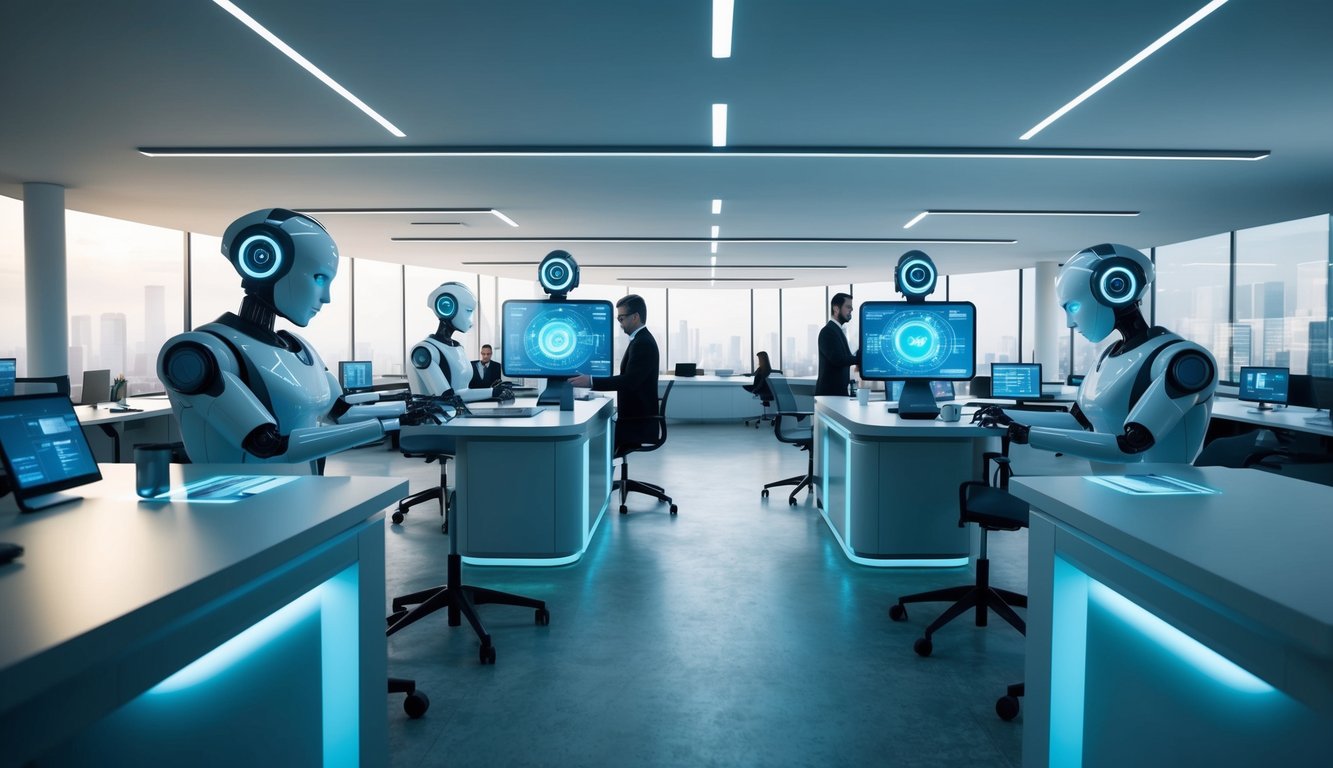
AI tools are transforming how businesses operate and boost productivity. They tackle repetitive tasks, enhance our work, and provide data insights to guide decisions.
Automate Repetitive Tasks
I’ve seen firsthand how AI can take over mundane jobs. It’s like having a tireless assistant who never complains about data entry! AI-powered tools now handle tasks like:
- Scheduling meetings
- Processing invoices
- Managing customer inquiries
This frees up time for more important work. For example, I used to spend hours sorting emails. Now, an AI tool does it in seconds, letting me focus on replying to the critical ones.
AI can also automate complex processes. I recently watched a manufacturing plant use AI to optimize its production line. The system adjusted machine settings in real-time, reducing waste and boosting output.
Augmented Working
AI isn’t replacing us – it’s making us better at our jobs. I like to think of it as a super-smart colleague always ready to help.
For writers like me, AI suggests improvements and checks for errors. It’s like having an editor on call 24/7. Designers use AI to generate ideas and refine concepts faster than ever.
In sales, AI analyzes customer data to predict which leads are most likely to convert. It’s like having a crystal ball! This helps teams focus their efforts where they’ll have the biggest impact.
Even in creative fields, AI is lending a hand. I’ve seen musicians use AI to compose backing tracks, freeing them to focus on melodies and lyrics.
Data-Driven Insights
AI turns mountains of data into gold mines of insight. It’s like having x-ray vision into your business!
I’ve used AI tools to spot trends in market data that I would have missed. They can predict customer behavior, helping businesses tailor their offerings. For instance, a retail chain I worked with used AI to optimize inventory across stores, reducing waste and boosting sales.
AI also helps make sense of unstructured data like customer reviews or social media posts. It’s like having thousands of ears on the ground, listening to what people really think about your brand.
These insights drive smarter decisions across the board – from product development to marketing strategies. With AI, gut feelings are backed up by hard data.
Ethical Considerations and Legislation
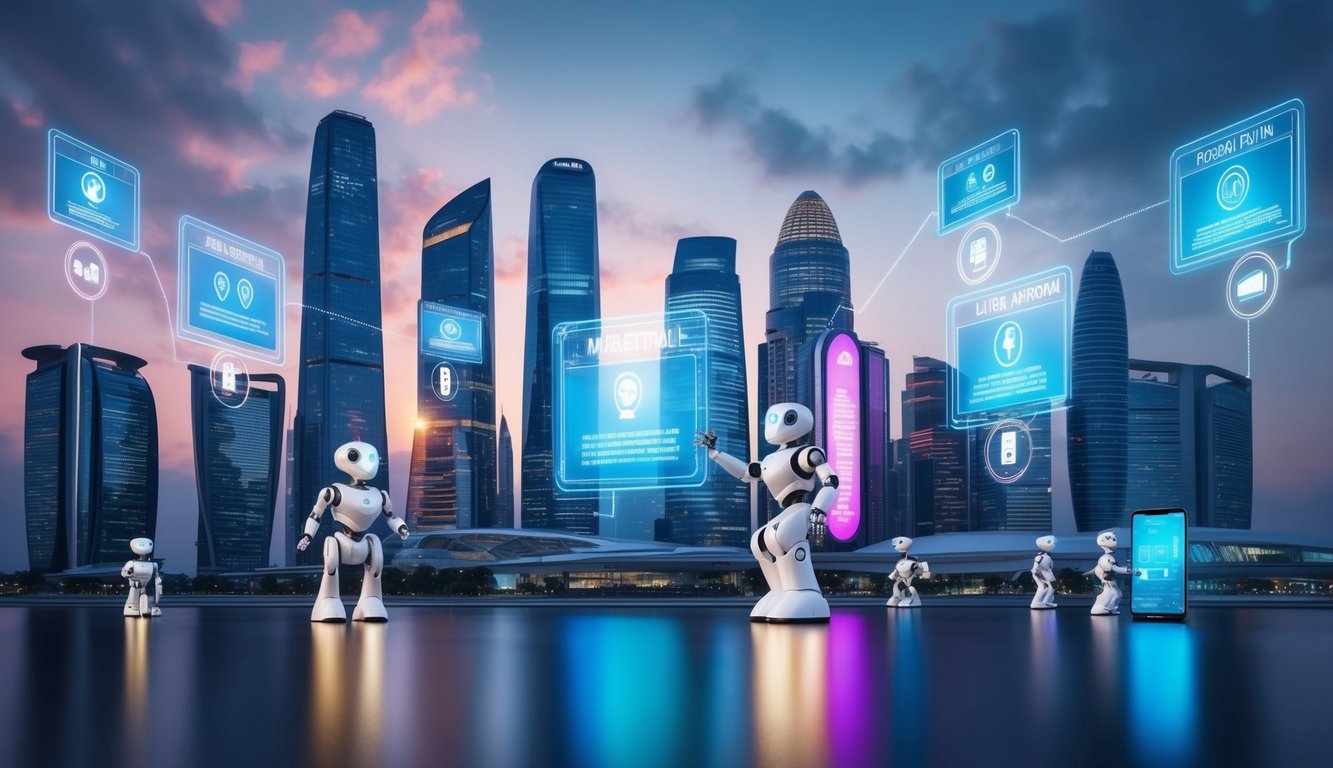
As AI tools become more advanced in 2025, we face important questions about their use. I’ve seen how these issues affect real people and businesses. Let’s look at the key ethical and legal concerns we need to address.
Responsible AI
Responsible AI means creating systems that are fair and don’t harm people. I once worked with a company that used AI in hiring. We had to be careful it didn’t discriminate.
Some ways to make AI more responsible:
- Test for bias regularly
- Have humans review AI decisions
- Be clear about when AI is being used
Companies are now expected to follow AI ethics guidelines. These help ensure AI systems are fair and safe.
AI Legislation
Laws about AI are changing fast. In 2025, many countries have new rules about how AI can be used.
Key areas of AI legislation:
- Data protection
- Algorithmic transparency
- AI safety standards
I remember when the first major AI law passed. It was a big deal! Now, companies have to be very careful to follow AI regulations.
Ethical Issues
AI brings up tricky ethical questions. Should a self-driving car prioritize passengers or pedestrians in an accident? It’s not always easy to decide.
Some major ethical issues with AI:
- Job displacement
- AI-generated fake content
- Autonomous weapons
I once had to help decide if an AI system should be used to grade student essays. We had to think hard about fairness and accuracy.
Data Privacy
Keeping personal data safe is super important with AI. These systems often need lots of data to work well. But we have to protect people’s privacy too.
Ways to improve data privacy:
- Use anonymized data
- Get clear consent
- Delete unnecessary data
I’ve seen firsthand how data breaches can hurt people. That’s why strong data protection is so crucial with AI systems.
Post-Truth World
AI can now create very convincing fake videos and text. This makes it harder to know what’s real online. I worry about how this affects trust in society.
Challenges in a post-truth world:
- Spotting AI-generated fake news
- Verifying online information
- Maintaining trust in institutions
We need better tools to detect AI fakes. Education is key too. I always tell my friends to be skeptical of what they see online.
AI in Security and Privacy
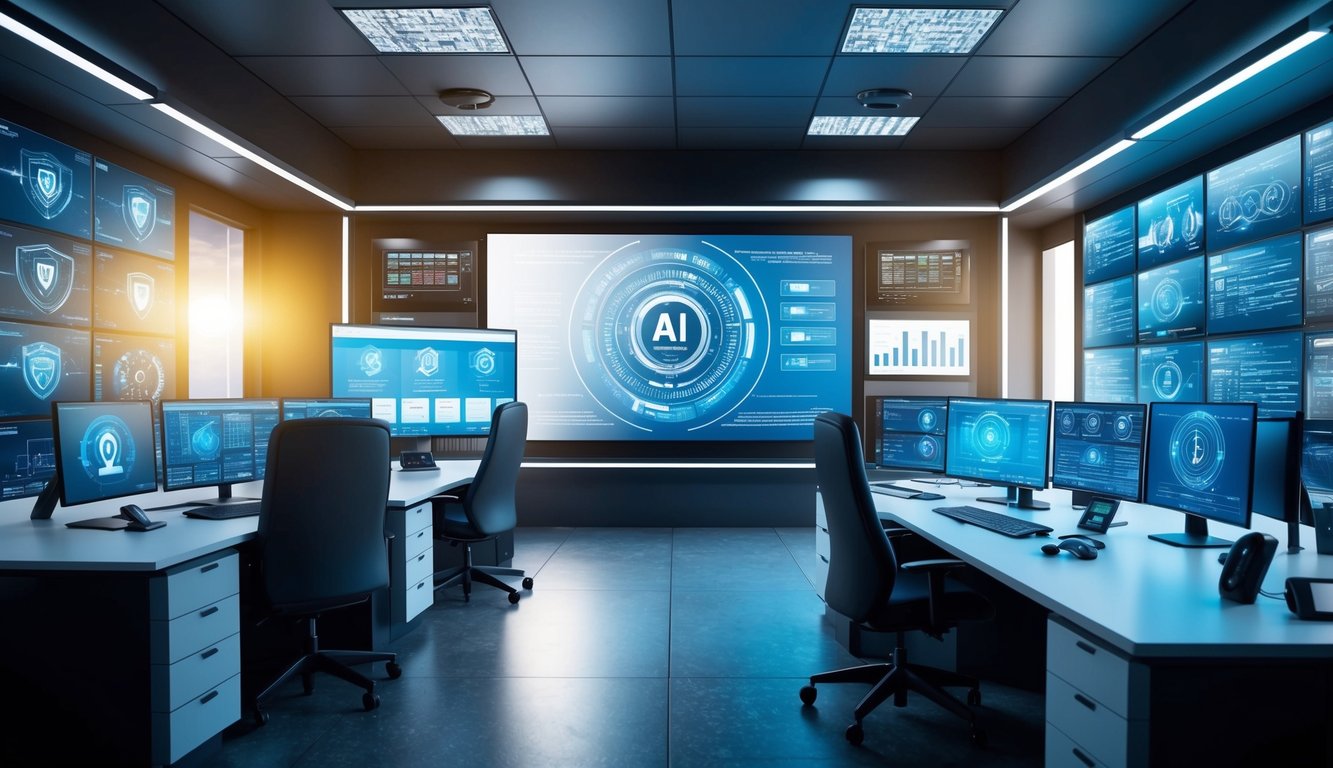
AI is changing how we protect data and fight cyber threats. It’s making security stronger but also raising new privacy concerns. I’ve seen firsthand how these tools are reshaping the digital landscape.
AI in Cybersecurity
AI is becoming a key player in cybersecurity. I remember when firewalls were the main defense – now AI-powered systems can spot threats much faster. These smart tools analyze patterns and predict attacks before they happen. It’s like having a super-smart guard dog for your data!
Some cool AI security features I’ve noticed: • Faster threat detection • Automated responses to attacks • Prediction of new cyber risks
But it’s not all rosy. Bad guys are using AI too. I’ve heard of AI-generated phishing attacks that are really tricky to spot. It’s like a high-tech game of cat and mouse.
Privacy Concerns
While AI boosts security, it also brings up privacy worries. I’m always a bit nervous about how much data these systems collect. It’s like having a friend who knows all your secrets – useful, but scary!
Some privacy issues I’m keeping an eye on: • How AI uses personal data • Risks of data breaches in AI systems • Balancing AI benefits with privacy
Companies are working on this. I’ve seen new tools that use AI to protect privacy, not just security. It’s a tricky balance, but I’m hopeful we’ll find a good middle ground.
Trends and Predictions for Future AI
AI is set to transform our world in amazing ways by 2025. I’ve been keeping a close eye on the latest developments, and I’m excited to share some key trends that will shape AI’s future. Let’s explore what’s coming next in this rapidly evolving field.
Predictions
I predict that AI-powered tools will become standard in hospitals by 2025. This will be a game-changer for healthcare. Imagine getting faster, more accurate diagnoses thanks to AI analyzing medical images. It’s like having a super-smart assistant for doctors!
Another exciting prediction is the rise of autonomous vehicles and smart transportation systems. I can’t wait to see self-driving cars zipping around our cities. It’ll make commuting a breeze and hopefully reduce traffic accidents too.
I also foresee AI playing a bigger role in our daily work lives. We’ll likely see more AI-enhanced decision-making tools that help us make smarter choices faster. It’s like having a brainy sidekick at your desk!
Sustainable AI
I’m really excited about the growing focus on sustainable AI. It’s not just about making smarter machines, but also making sure they’re environmentally friendly.
One trend I’m seeing is the development of more energy-efficient AI models. These new models will be able to do complex tasks without gobbling up tons of electricity. It’s like teaching our AI to be smart and eco-conscious at the same time!
I also expect to see more AI solutions tackling environmental challenges. Imagine AI helping us optimize renewable energy systems or predict natural disasters more accurately. It’s like having a high-tech guardian for our planet!
Gemini
Have you heard about Gemini? It’s Google’s latest AI model, and I think it’s going to be a big deal by 2025. Gemini is designed to handle a wide range of tasks, from writing code to analyzing images.
I predict Gemini will become a powerful tool for boosting human creativity. Imagine having an AI assistant that can help you brainstorm ideas, design graphics, or even compose music. It’s like having a digital muse at your fingertips!
But Gemini isn’t just about creativity. I think we’ll see it used in scientific research too. It could help scientists analyze complex data or simulate experiments. It’s like giving researchers a supercharged lab partner!
Frequently Asked Questions
AI tools have transformed industries and our daily lives in 2025. They’ve brought new capabilities, job changes, and ethical questions. I’ve seen firsthand how these tools are shaping our world.
How are AI tools revolutionizing industries in 2025?
AI tools are making waves across sectors. In healthcare, I’ve watched AI diagnose diseases faster than human doctors. It’s amazing! AI-powered agents now handle complex tasks at work and home, simplifying our lives.
Manufacturing has become super efficient. AI optimizes production lines better than any human could. It’s like having a tireless, genius manager overseeing everything 24/7.
What are the emerging capabilities of AI tools anticipated by experts for 2025?
Experts predict some mind-blowing stuff. I’m excited about AI addressing global challenges like climate change and healthcare access. It’s not just sci-fi anymore!
Language models are getting scarily good. They can write, translate, and even create art that’s hard to distinguish from human work. I tried one the other day, and it wrote a poem that made me tear up.
Which AI tools have seen the greatest adoption in 2025 and why?
AI writing tools are everywhere now. They help create content faster than ever. I use one for my blog, and it’s like having a writing partner who never gets tired.
AI-powered personal assistants have really taken off too. They manage our schedules, answer calls, and even help with shopping. It’s like having a super-smart friend always ready to help.
In what ways have free AI tools shaped the market in 2025?
Free AI tools have leveled the playing field. Small businesses can now compete with big corporations. I’ve seen local shops use AI for customer service and inventory management.
These tools have also sparked creativity. Anyone can now make music or art with AI help. My neighbor’s kid created a hit song using a free AI tool – it’s wild!
How has the evolution of AI tools in 2025 impacted employment and skill requirements?
Jobs have changed a lot. Some roles disappeared, but new ones popped up. I had to learn how to work alongside AI in my job. It was tricky at first, but now I can’t imagine working without it.
Soft skills have become super important. Creativity, emotional intelligence, and critical thinking are valued more than ever. Machines can crunch numbers, but they can’t replace human empathy.
What are the ethical considerations surrounding the use of AI tools in 2025?
Privacy is a big concern. AI tools collect tons of data, and we’re still figuring out how to protect it. I worry about my personal info sometimes, but the benefits often outweigh the risks.
Bias in AI is another hot topic. We’ve made progress, but some AI tools still show unfair preferences. It’s crucial to keep working on this. After all, we want AI to help everyone equally.


